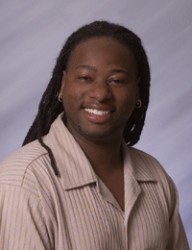 Eric Johnson |
A recent nine-day tour of elementary and high schools in St. Petersburg, Russia, gave Eric Johnson, Drake assistant professor of education, a fresh perspective on how race and other differences work in American education and society.
During more than 120 hours of taped interviews with Russian students, teachers and administrators, Johnson explored the contrasts between the urban education environments of America and Russia with a focus on how the perception of differences between people play out in educational settings.
In America, differences generally play out along obviously recognizable lines – race, gender and socio-economic class. Race, especially as it relates to skin color, generally plays out in the cultural mixes and clashes between whites, blacks and Latino-Americans.
But in St. Petersburg, Caucasians – people actually from the Caucasus Mountains – and others from the Balkans are referred to as “black” by others of Russian descent, despite being light skinned or white in appearance. This reference to “black” is not positive and operates as a racial slur.
“The more I traveled and the more people I met, the more I realized that we are just making up this race stuff,” Johnson said. “These are social constructs – important and powerful ones. The things that we think to be true in the United States – differences and divisions between races and classes are very different from those distinctions in St. Petersburg. Yet because those differences are there, our societies are, in fact, similar.”
For example, as more people from the former Soviet republics migrate to larger Russian cities, Russians struggle with how to integrate those cultures that were once held together – by both necessity and force – of the communist state.
The cultural merging has intensified a division in Russian society between Ruskies, those whose families have always been Russians, and Russiani, those who migrated to Russia through the generations.
The distinction may seem subtle and even unimportant to Americans, who, at least in theory, offer the same rights to all people regardless of heritage. But in Russia, the distinction becomes an important political and social difference.
“A Russiani can never be a Ruskie, no matter how long they’ve lived in Russia and that carries with it very real social, political and educational implications,” Johnson said. “I visited a community of people of African decent who helped build St. Petersburg. They’ve been there for 300 years, but they are not considered Ruskies. They don’t have the same rights as Ruskies and are certainly not treated the same as other people from the same area.”
“It comes down to a simple question: ‘Who is a Russian?’ But there is no simple answer to that,” Johnson said.
Johnson believes that Russia and America are at a similar social crossroads when it comes to dealing with difference issues.
“We’re both struggling to appreciate our differences while not promoting disadvantage as a part of that,” Johnson said.
Johnson plans more trips to Russia this year.

